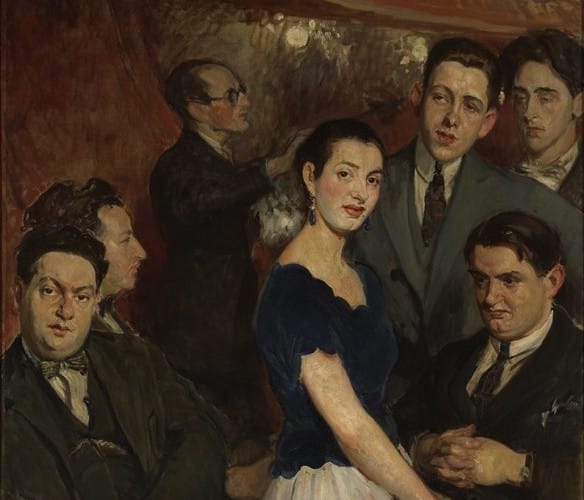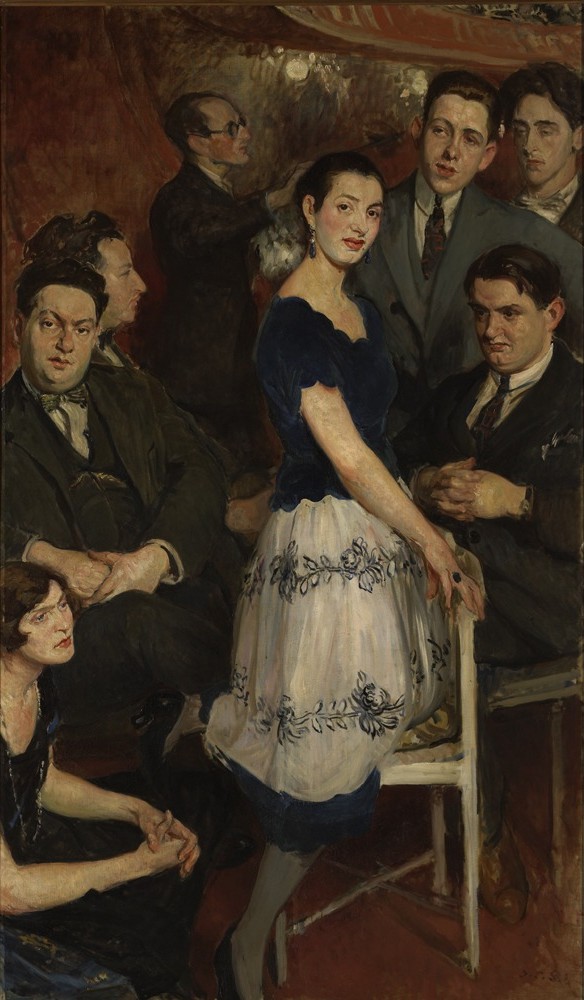Great Music Is Gender-blind

Historically, the works of many women composers did not quite make it into the canon. It is perhaps why the female sensibility continues to be viewed through a celebratory lens – like a rare event, so to say. We take a look at some of these prolific composers who did not get their due and speak to a contemporary composer and a musician to understand why. By Beverly Pereira
The Experimental Theatre at the NCPA was packed to the hilt on every one of the four evenings of Con Brio 2019. While aware of the programme, many in attendance were not acquainted with some of the composers whose works were to be performed. Of course, most knew of Clara Schumann; the 10th edition of the festival, titled ‘More Schumania’, celebrated her exquisite compositional skills in the bicentennial year of her birth. While not as widely recognised as her husband Robert Schumann, Clara was the first woman to be regarded as an equal by her male counterparts – a rarity, really, in the 19th century, with its conspicuous gender constructs. Along with highlighting her quiet genius, Con Brio – The John Gomes Memorial Piano Competition presented the works of other prodigiously skilled women composers like Élisabeth Jacquet de la Guerre and Mélanie Bonis who were in fact enabled by Clara’s success but were sadly under-represented during their time. According to Parvesh Java, pianist and festival director of Con Brio, many of the young performers too had not heard of some of these composers prior to the festival. “It was almost like an alternate reality: a classical music festival with works from the 11th to the 21st century with a totally different set of names,” he says.
The second half of the programme on the day of the semi-final of the competition comprised a fitting showcase of Sally Beamish’s The Seafarer Trio, a unique composition written by the contemporary British composer for narrator and piano trio. Needless to say, what unfurled over the course of those four evenings was beguilingly magical and, according to many, refreshing. But, why is it that the celebration of the female voice still feels like a rare and invigorating occurrence even today? Such showcases are certainly the need of the hour. Not only do they help rectify mistakes made in the past, but they also highlight the importance of diversity – in both programming and curriculum design.
Now and then
Beamish tells us in an email interview that Clara Schumann was the only woman composer she had ever heard of as a child despite the fact that she had never been exposed to her music at the time. “I decided she would be my role model, but there was little opportunity to hear her music,” says Beamish, adding that she does not remember any women composers being mentioned later at music college, too, where she completed a degree in the ’70s that included music history.
“I had opted to study viola rather than composition, as I didn’t see composition as a possible career. I knew I would always compose, but assumed I would need to support myself by playing.”
Beamish feels there are several factors that contribute to gender disparity in the field of composition today. Besides the lack of role models, confidence is another consideration.
“Speaking personally, I know I am dogged by a lack of self-belief, and that this comes partly from my education. The ‘great masters’ that we learnt of were male. Even women composers who were well-known in their lifetime were later forgotten because music histories did not include them. A surprisingly low proportion of women come forward in competitions and calls for scores. This could come from a lack of confidence – or simply a lack of time. And perhaps women are less likely to want to compete.”
Indeed, some of history’s finest women composers ought to have become household names by now, even if they had not in their time. Despite the fact that they possessed the prerequisite streak of genius and endured the rigours of a thorough music education, many women composers were not treated as equals by their male counterparts or even taken seriously by society. To be considered a woman composer in 18th- or 19th-century society was rare, and appreciation didn’t come easy. “I think it is similar to gender disparity in wages in certain fields, such as film, even today. I imagine that when the men composed, it was their profession and hence their livelihood, so it carried a different weight than when the women did – it was more of a hobby, their homes did not run on the merit of their compositions,” says Java.
Women of note
Take Maria Anna Mozart, the older sister of Wolfgang Amadeus Mozart, whose birth anniversary falls this month. Nicknamed Nannerl, she was widely known for her virtuosic piano skills in the 1760s as she toured European concert halls with her father when she was just 12. “It’s very likely that some of Wolfgang Mozart’s early works were actually composed by Nannerl. Their father knew it was much more lucrative to foster a male child genius than his older sister, who was also exceptionally gifted. Nannerl had to marry and she gave up composing,” Beamish points out. And so, unlike her famous brother, this Mozart did not quite get her due. Another exceptional composer who shared a similar trajectory is Fanny Hensel née Mendelssohn. She too was an older sibling to someone who would go on to become one of the most celebrated figures in the Western classical tradition. The sister of Felix Mendelssohn was already playing Bach preludes from memory when she was 14 and went on to compose scores of pieces for the piano during her short lifetime. In the early half of the 19th century, societal conventions prevented her body of work from being heard; many of her works were even published under her brother’s name.
Like Mendelssohn or Schumann, the pioneering composer and skilled pianist Amy Beach was also discouraged from making a career out of music. Recognised as a child prodigy capable of improvising counter-melody, she made her performance debut when she was 16. While she will always be remembered as the first American female composer of large-scale art music, not forgetting her “Gaelic” Symphony, she continues to be one of those oft-neglected composers whose works are gradually making it into concert halls. “As time progressed, it took a while for people to adjust to the fact that women could also be professionals. Beach was regarded as one, but I imagine people couldn’t let go of the fact that she was a woman, and so her success was a bit muted. But she showed the world that she could play with the big boys and paved the way for future generations of women composers and performers,” says Java.
The French composer and conductor Nadia Boulanger was said to have given up writing music based on the belief that she possessed no talent whatsoever when it came to composing. This, despite the fact that she achieved early honours at the Paris Conservatoire. She focussed on teaching, instead, to support her family after her father’s death and inadvertently became one of history’s most influential teachers with a diverse set of students including Phillip Glass, Vanraj Bhatia, Lalo Schifrin, Astor Piazzolla and Quincy Jones. Besides teaching, she nurtured her career as a conductor and made a name for herself as the first woman to conduct orchestras like the New York Philharmonic and London’s Royal Philharmonic Orchestra. Boulanger’s work is not often performed, though her sister Lili, who died at 25, is better known as a composer. “In general, women have been much affected by their circumstances, and without the support, both artistic and financial, of a man, could not achieve performance or publication outside the drawing room,” Beamish observes.
Germaine Tailleferre, one of Les Six, found it degrading to be branded a “woman composer” when the men in the influential French group of the 1920s were rightly called only composers. This, however, wasn’t her first brush with gender disparity. Tailleferre is believed to have changed her last name embittered by her father’s reluctance to her music studies.

Florence Price, the first African-American woman to have her music performed by a major symphony orchestra, is, as musicologist Douglas Shadle puts it, mentioned for this very identity more often than she is heard. The recent emergence of her Fourth Symphony has added another dimension to her rediscovery, but though her music was well received, it was not easy to get by on it. In a letter to Serge Koussevitzky, conductor of the Boston Symphony Orchestra, she introduced herself thus: ‘To begin with I have two handicaps — those of sex and race. I am a woman; and I have some Negro blood in my veins.’
The way forward
“As large-scale works have always defined the canon of ‘great’ composers, very few women are ever even mentioned in the context of ‘great’ music. Female composers may be well-known and respected in their lifetime, but do not then make it into the canon and are not taught as important figures,” says Beamish. “We have several good recordings of Beethoven Sonatas, but there still doesn’t exist even a single recording of several valuable works by women from the same time,” adds Java. Beamish concurs that it is important that as much music as possible is made available in recordings.
Contemporary women composers have come a long way from beating the odds and having their talents doubted in the once all-male bastion of Western classical music. Kaija Saariaho is a glowing example. The Finnish composer with a distinctive musical style, personal voice and a 100-plus works to her credit, has been widely acclaimed for the great strides she has made in spectral music.
Yet, even as programming is on the way to becoming more inclusive and diverse, it is hard to look past the glaring prejudices that linger on – be it on music charts or in concert halls. While composers of today may not face the same set of struggles as their erstwhile counterparts, little has changed by way of perceptions in a society casually structured to favour the works of male musicians. “It’s exciting to see how the musical landscape is shifting to include music by women, but sad to realise how much music has been lost, or never committed to paper in the first place, due to the assumption, as voiced by Clara Schumann: ‘A woman must not desire to compose – there has never been one able to do it’,” says Beamish.
“Music needs repeated hearings to be assimilated by its listeners. A single performance of a work will not necessarily grab its listeners, who may compare it unfavourably to music they know well, and which therefore they have come to love. And importantly, girls need role models.”
This piece was originally published by the National Centre for the Performing Arts, Mumbai, in the July 2020 issue of ON Stage – their monthly arts magazine.






